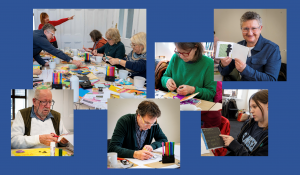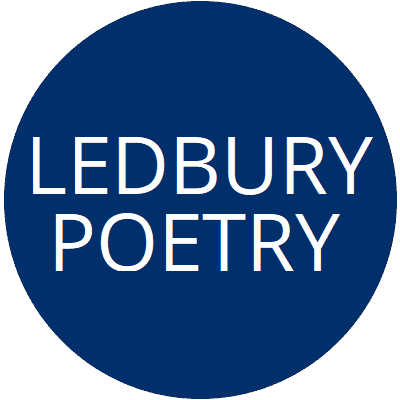
COMMUNITY CONSULTATION
Ledbury Poetry in the Community began in Spring 2024 with a series of consultation events engaging the wider community in book/art/craft based activities. From these fun and interactive events, for all ages, a report will be written which will in turn inform activities to be developed at Ledbury Poetry House in the future.
We have a short survey here Community Survey which we invite you to complete. This is your chance to have your say and share your ideas!
Broad Brushstrokes on a Blank Page Sara-Jane Arbury will lead a set of writing activities in the first part of the workshop, exploring the use of questions and answers in poetry. In response to the words and poems collected from Sara-Jane’s activities, and by using found papers, paint sticks, posters will made to become bold compositions that capture the flavour of poetry.
The Colour of Words with Jeanette McCulloch. From a collection of colour-printed words, you’ll construct our own small book of poetry as collage. These poetic words will form an individual response about our relationship with the wider meaning of poetry and what it might mean to us. This small library of books will be displayed in the Poetry House and returned to their maker.
‘Finding Poems’ with Sara-Jane Arbury. Poems can be found in the most unexpected places. Join Sara-Jane Arbury as she leads a poetry writing workshop exploring the wonderful world of Found Poetry. Discover how words and phrases from unusual sources can lead to distinctive and surprising poems!
Rugby Club Fun Evening with Brenda Read-Brown and Emma Clowsley as a part of the Ledbury Poetry community consultation on 29th March at 7.30pm.
All events are FREE but ticketed. Please book HERE: What’s On – Ledbury Poetry
This project is funded by the UK Government through the UK Shared Prosperity Fund

